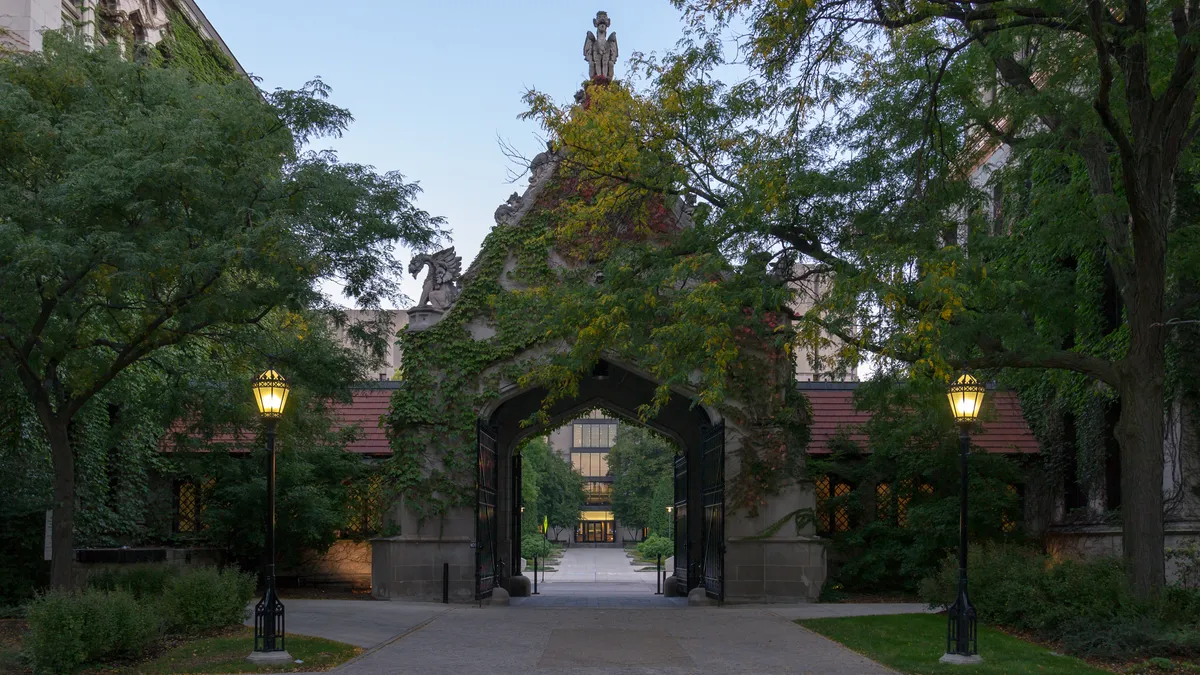Dive Brief:
- Carnegie Mellon University Professor Bob Monroe discussed in a recent interview with Education Dive how the largely-held perception that Massive Open Online Classes would replace the traditional college lecture was largely overblown.
- The result, of the introduction of MOOCs into the higher ed landscape has been subtler, with it becoming increasingly clear that online learning opportunities offer an “evolution” of classroom instruction which allows faculty members to create a unique classroom experience via an online platform.
- Monroe said many higher ed institutions are also incorporating more focused learning opportunities into shortened programs, and online instruction is opening the door for class discussions to go deeper as they unfold over the course of days, rather than be confined to a classroom schedule.
Dive Insight:
Monroe said that the introduction of Massive Open Online Courses several years back instigated concern amongst professors worried for their jobs, and administrators who saw the potential to cut higher costs on staff. Instead, however, MOOCs have opened the conversation to online content delivery in which tools are used in conjunction with professors and other experts who maintain the need for smaller group interactions. He noted that face-to-face interaction remained an important attribute, even though online classes should not attempt to double the processes of an in-person class.
Online class designers should consider how the courses can be constructed to include such interaction, and school leaders and department chairs should work with professors and students to popularize the use of accessible (and often free) tools that can be utilized to keep robust conversation, dialogue and debate alive digitally. Monroe said it is also important for online learning not to mirror the in-person classroom experience, but to utilize what is unique about the technological delivery platform to create the best online and blended learning experiences.
The popularization of focused learning opportunities Monroe cited mirrors an increase in interest and enrollment in alternative education programs, apprenticeships and modules. As students seek out more accessible and cost-effective options for postsecondary education, and industry demands become more difficult to predict over the long term, colleges and universities could also benefit from instituting more focused learning programs. As emphasis on decreasing time-to-degree to help lessen the cost of college mounts, using online modules to deliver program content could be one solution to both a budget shortage which sees institutions limiting faculty members' teaching hours, and enrollment crises which see potential students turning away from the institution.








